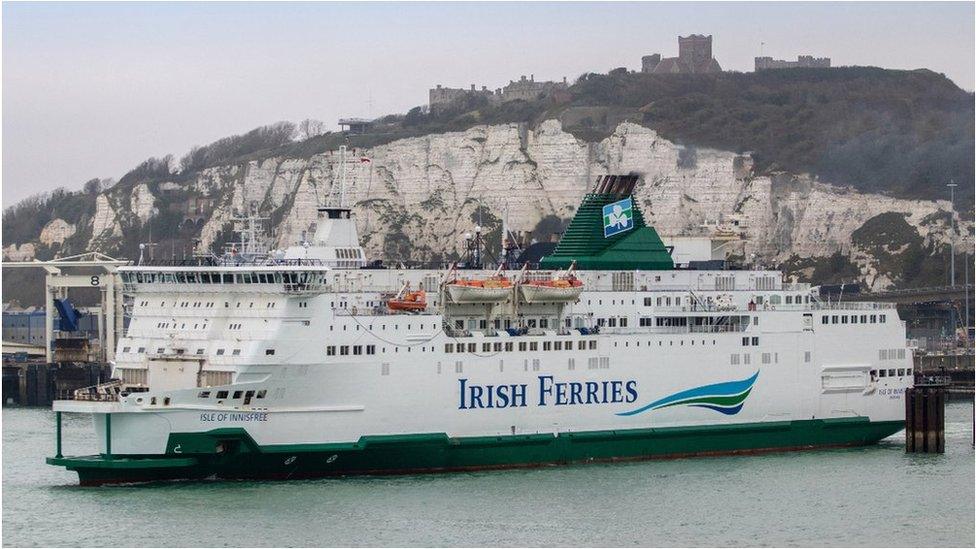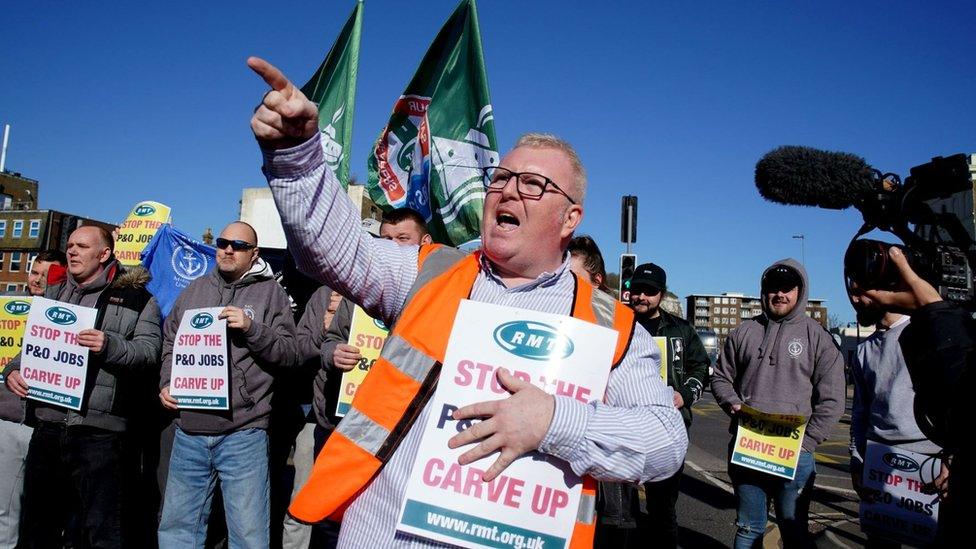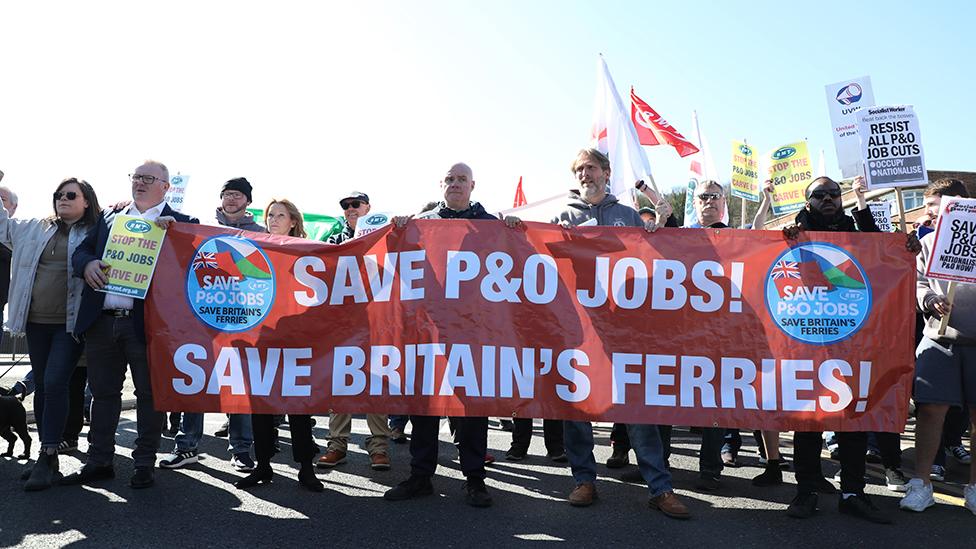P&O Ferries: RMT union raised concerns over Irish Ferries last year
- Published

Irish Ferries has been operating between Dover and Calais since June 2021
A transport union raised concerns over a low-cost labour model used by Irish Ferries last year, the BBC has learnt.
The RMT union wrote to the government saying it "appears either unable or unwilling to act" on Irish Ferries' low-cost labour model.
It's the same model P&O Ferries is now introducing after the sacking of 800 staff.
P&O Ferries replaced staff with agency workers paid less than the UK minimum wage.
Transport Secretary Grant Shapps told BBC News that he would be introducing new legislation next week that would mean P&O Ferries and Irish Ferries "will have to change their operating model".
In 2021, the RMT union raised concerns over UK seafarers needing "greater government protection from low-cost employers like Irish Ferries."
In a letter, its general secretary Michael Lynch called on the government to "tackle the growing threat that Irish Ferries pose to collectively bargained terms and conditions for Ratings and Officers and to safety standards in the ferries sector."
Despite calls from the RMT union, Transport Minister Robert Courts did not propose legislation in 2021.
Instead, in a letter to the RMT seen by the BBC, he outlined the challenges to the government taking action, saying: "The Irish Ferries vessel is not flagged in the UK, it will be operating on an international route and it will spend as much time in the territorial waters of France as in those of the UK."
He added that because the vessel was registered in Cyprus, he assumed that the seafarers on the ship were covered by collective bargaining between Cypriot shipowners and Cypriot unions.
Michael Lynch wrote to the minister as Irish Ferries began operating on the Dover to Calais route.
Transport Secretary Grant Shapps is now proposing measures such as forcing ferry companies to pay UK minimum wage when a ship is in UK waters, but that was not suggested last year.
'Already went down this route'
Defending his decision to sack almost 800 workers and replace them with cheaper, agency staff, P&O Ferries' chief executive Peter Hebblethwaite told a committee of MPs on Thursday: "This is an international seafaring model that is consistent with models throughout the globe and our competitors."
Grant Shapps confirmed to BBC News that: "There are other operators who have been using this model I have to say - Irish Ferries already went down this route."
And he said that the changes he was planning would protect "those like Stena and DFDS who are not using this cheap labour, below the minimum wage model".
Irish Ferries declined to comment on the transport secretary's remarks.
It also emerged on Friday that P&O's owner - DP World - had warned Mr Shapps that Irish Ferries was a new "low-cost competitor" that would pose a challenge to the business, when minutes from a meeting in November were published.
Mr Shapps had replied to DP World boss DP Sultan Ahmed Bin Sulayem: "I'm aware of the issues relating to P&O. I recognise you will need to make commercial decisions, but please do keep us informed."
The RMT said that the company also operated the low-cost crewing model on the Holyhead-Dublin and Rosslare Pembroke routes, which undercuts Stena Line's UK-crewed ships on those routes.
BBC News asked the Department for Transport what had changed since last year and why it had not taken action at the time to protect operators such as P&O Ferries from this low-cost competition.
It said that it would be "inappropriate to speculate about the impact of one particular competitor".
A spokesperson said that companies may make commercial decisions which "they feel best support their company", but they must follow the law when doing so.
"P&O's actions have been those of a company with no consideration for loyal and hardworking employees, and we are exploring all options to continue to hold P&O Ferries to account for their actions and deter other operators from similar action," they added.
Related topics
- Published25 March 2022

- Published31 March 2022
